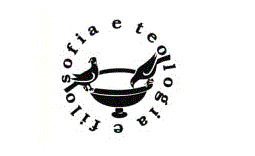


Prendendo le mosse da testo Religion without God di R. Dworkin, il saggio considera in quali modi, nell’attuale clima culturale, una radicale forma di ‘religiosità’ può accomunare teisti e atei che si lascino coinvolgere e misurare da dimensioni eccedenti ogni potere umano. Si fa riferimento a due prospettive di ‘ateismo religioso’: quella dworkiana basata sulla riscoperta di valori ‘intrinseci’ che impregnano la bellezza della natura e la dignità della vocazione morale umana; un’altra, di impronta heideggeriana, che fa perno sulla costitutiva esposizione della finitezza esistenziale al ‘divino’ offrirsi del mondo. Ci si chiede soprattutto per quali ragioni queste proposte, che nei loro differenti percorsi delineano gratuite aperture verso l’indisponibile, prendano entrambe le distanze dall’ipotesi che sia un dono-appello proveniente dal mistero di Dio a orientare e sollecitare, grazie ad una inoggettivabile intenzione di bene, il cammino etico-sapienziale che qualifica responsabilmente l’ ‘umano in comune’.
Parole chiave: religiosità comune, ateismo, dono-appello
Starting from an analysys around the work of R. Dworkin Religion without God, the essay considers in what ways, in our current cultural clima, a radical and singular ‘religious tension’ is able to bond, or at least fruitful connect, theists and atheists in realtionship with a dimension of meaning above the human domain. On this regard, the essay deals with two prospectives of 'religion
atheism': a dworkian's one, based on inherent values regarding the beauty of nature wonders and the moral truth of human destiny; and another one which, following Heideger's legacy, is based on the
constitutive exposition of existential finitude to the 'divine' opening of the world. Both prospectives, despite paving the way to create a breach toward a non-disposable reality, they both refuse, in
different manners, the hypothesys that it is the mistery of God, as reclaiming-gift full of benevolent intention who guides and motivates the ethical-sapiential journey giving responsabilities to
'human in common'.
Keywords: religious-tension common , atheism , reclaiming-gift